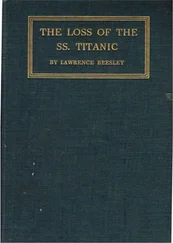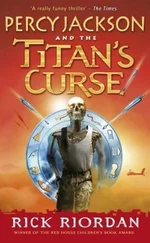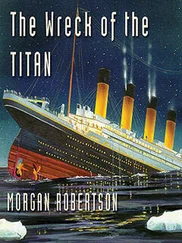Theodore Dreiser - The Titan
Здесь есть возможность читать онлайн «Theodore Dreiser - The Titan» весь текст электронной книги совершенно бесплатно (целиком полную версию без сокращений). В некоторых случаях можно слушать аудио, скачать через торрент в формате fb2 и присутствует краткое содержание. Жанр: Классическая проза, на английском языке. Описание произведения, (предисловие) а так же отзывы посетителей доступны на портале библиотеки ЛибКат.
- Название:The Titan
- Автор:
- Жанр:
- Год:неизвестен
- ISBN:нет данных
- Рейтинг книги:5 / 5. Голосов: 1
-
Избранное:Добавить в избранное
- Отзывы:
-
Ваша оценка:
- 100
- 1
- 2
- 3
- 4
- 5
The Titan: краткое содержание, описание и аннотация
Предлагаем к чтению аннотацию, описание, краткое содержание или предисловие (зависит от того, что написал сам автор книги «The Titan»). Если вы не нашли необходимую информацию о книге — напишите в комментариях, мы постараемся отыскать её.
The Titan — читать онлайн бесплатно полную книгу (весь текст) целиком
Ниже представлен текст книги, разбитый по страницам. Система сохранения места последней прочитанной страницы, позволяет с удобством читать онлайн бесплатно книгу «The Titan», без необходимости каждый раз заново искать на чём Вы остановились. Поставьте закладку, и сможете в любой момент перейти на страницу, на которой закончили чтение.
Интервал:
Закладка:
“Why did you go to him?” exclaimed Schryhart, professing to be greatly astonished and annoyed, as, indeed, in one sense he was. “I thought we had a distinct understanding in the beginning that under no circumstances was he to be included in any portion of this. You might as well go to the devil himself for assistance as go there.” At the same time he was thinking “How fortunate!” Here was not only a loophole for himself in connection with his own subtle side-plays, but also, if the quadrumvirate desired, an excuse for deserting the troublesome fortunes of Hull & Stackpole.
“Well, the truth is,” replied Stackpole, somewhat sheepishly and yet defiantly, “last Thursday I had fifteen thousand shares on which I had to raise money. Neither you nor any of the others wanted any more. The banks wouldn’t take them. I called up Rambaud on a chance, and he suggested Cowperwood.”
As has been related, Stackpole had really gone to Cowperwood direct, but a lie under the circumstances seemed rather essential.
“Rambaud!” sneered Schryhart. “Cowperwood’s man—he and all the others. You couldn’t have gone to a worse crowd if you had tried. So that’s where this stock is coming from, beyond a doubt. That fellow or his friends are selling us out. You might have known he’d do it. He hates us. So you’re through, are you?—not another single trick to turn?”
“Not one,” replied Stackpole, solemnly.
“Well, that’s too bad. You have acted most unwisely in going to Cowperwood; but we shall have to see what can be done.”
Schryhart’s idea, like that of Hand, was to cause Hull & Stackpole to relinquish all their holdings for nothing to the banks in order that, under pressure, the latter might carry the stocks he and the others had hypothecated with them until such a time as the company might be organized at a profit. At the same time he was intensely resentful against Cowperwood for having by any fluke of circumstance reaped so large a profit as he must have done. Plainly, the present crisis had something to do with him. Schryhart was quick to call up Hand and Arneel, after Stackpole had gone, suggesting a conference, and together, an hour later, at Arneel’s office, they foregathered along with Merrill to discuss this new and very interesting development. As a matter of fact, during the course of the afternoon all of these gentlemen had been growing more and more uneasy. Not that between them they were not eminently capable of taking care of their own losses, but the sympathetic effect of such a failure as this (twenty million dollars), to say nothing of its reaction upon the honor of themselves and the city as a financial center, was a most unsatisfactory if not disastrous thing to contemplate, and now this matter of Cowperwood’s having gained handsomely by it all was added to their misery. Both Hand and Arneel growled in opposition when they heard, and Merrill meditated, as he usually did, on the wonder of Cowperwood’s subtlety. He could not help liking him.
There is a sort of municipal pride latent in the bosoms of most members of a really thriving community which often comes to the surface under the most trying circumstances. These four men were by no means an exception to this rule. Messrs. Schryhart, Hand, Arneel, and Merrill were concerned as to the good name of Chicago and their united standing in the eyes of Eastern financiers. It was a sad blow to them to think that the one great enterprise they had recently engineered—a foil to some of the immense affairs which had recently had their genesis in New York and elsewhere—should have come to so untimely an end. Chicago finance really should not be put to shame in this fashion if it could be avoided. So that when Mr. Schryhart arrived, quite warm and disturbed, and related in detail what he had just learned, his friends listened to him with eager and wary ears.
It was now between five and six o’clock in the afternoon and still blazing outside, though the walls of the buildings on the opposite side of the street were a cool gray, picked out with pools of black shadow. A newsboy’s strident voice was heard here and there calling an extra, mingled with the sound of homing feet and street-cars—Cowperwood’s street-cars.
“I’ll tell you what it is,” said Schryhart, finally. “It seems to me we have stood just about enough of this man’s beggarly interference. I’ll admit that neither Hull nor Stackpole had any right to go to him. They laid themselves and us open to just such a trick as has been worked in this case.” Mr. Schryhart was righteously incisive, cold, immaculate, waspish. “At the same time,” he continued, “any other moneyed man of equal standing with ourselves would have had the courtesy to confer with us and give us, or at least our banks, an opportunity for taking over these securities. He would have come to our aid for Chicago’s sake. He had no occasion for throwing these stocks on the market, considering the state of things. He knows very well what the effect of their failure will be. The whole city is involved, but it’s little he cares. Mr. Stackpole tells me that he had an express understanding with him, or, rather, with the men who it is plain have been representing him, that not a single share of this stock was to be thrown on the market. As it is, I venture to say not a single share of it is to be found anywhere in any of their safes. I can sympathize to a certain extent with poor Stackpole. His position, of course, was very trying. But there is no excuse—none in the world—for such a stroke of trickery on Cowperwood’s part. It’s just as we’ve known all along—the man is nothing but a wrecker. We certainly ought to find some method of ending his career here if possible.”
Mr. Schryhart kicked out his well-rounded legs, adjusted his soft-roll collar, and smoothed his short, crisp, wiry, now blackish-gray mustache. His black eyes flashed an undying hate.
At this point Mr. Arneel, with a cogency of reasoning which did not at the moment appear on the surface, inquired: “Do any of you happen to know anything in particular about the state of Mr. Cowperwood’s finances at present? Of course we know of the Lake Street ‘L’ and the Northwestern. I hear he’s building a house in New York, and I presume that’s drawing on him somewhat. I know he has four hundred thousand dollars in loans from the Chicago Central; but what else has he?”
“Well, there’s the two hundred thousand he owes the Prairie National,” piped up Schryhart, promptly. “From time to time I’ve heard of several other sums that escape my mind just now.”
Mr. Merrill, a diplomatic mouse of a man—gray, Parisian, dandified—was twisting in his large chair, surveying the others with shrewd though somewhat propitiatory eyes. In spite of his old grudge against Cowperwood because of the latter’s refusal to favor him in the matter of running street-car lines past his store, he had always been interested in the man as a spectacle. He really disliked the thought of plotting to injure Cowperwood. Just the same, he felt it incumbent to play his part in such a council as this. “My financial agent, Mr. Hill, loaned him several hundred thousand not long ago,” he volunteered, a little doubtfully. “I presume he has many other outstanding obligations.”
Mr. Hand stirred irritably.
“Well, he’s owing the Third National and the Lake City as much if not more,” he commented. “I know where there are five hundred thousand dollars of his loans that haven’t been mentioned here. Colonel Ballinger has two hundred thousand. He must owe Anthony Ewer all of that. He owes the Drovers and Traders all of one hundred and fifty thousand.”
On the basis of these suggestions Arneel made a mental calculation, and found that Cowperwood was indebted apparently to the tune of about three million dollars on call, if not more.
Читать дальшеИнтервал:
Закладка:
Похожие книги на «The Titan»
Представляем Вашему вниманию похожие книги на «The Titan» списком для выбора. Мы отобрали схожую по названию и смыслу литературу в надежде предоставить читателям больше вариантов отыскать новые, интересные, ещё непрочитанные произведения.
Обсуждение, отзывы о книге «The Titan» и просто собственные мнения читателей. Оставьте ваши комментарии, напишите, что Вы думаете о произведении, его смысле или главных героях. Укажите что конкретно понравилось, а что нет, и почему Вы так считаете.










